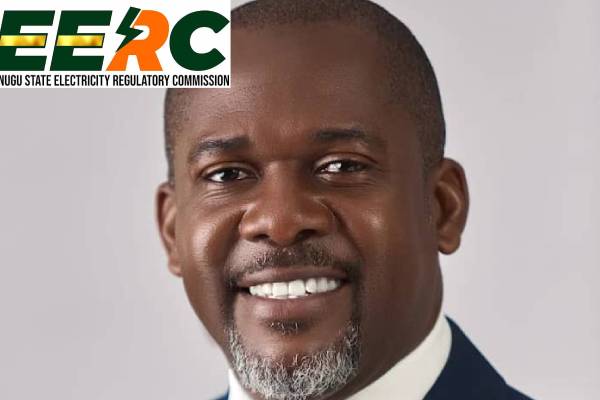The Enugu State Electricity Regulatory Commission, EERC, has responded to the Public Notice issued by the National Electricity Regulatory Commission, NERC, questioning its power tariff slash for Band A customers in the state from N209/kWh (per kiloWatt) to N160 kWh, effective from August 1, 2025.
EERC said that the Public Notice issued by NERC last Thursday arose mainly from “misconceptions and misplaced focus,” arising from the failure of some industry stakeholders to understand the fundamental changes introduced into the power sector through the 2023 constitution amendment, passage of the Electricity Act 2023, and emergence of the sub-national electricity market.
EERC made the clarification in a rejoinder it published on its website on Monday, saying that NERC’s Notice was intended to secure an exclusive right to determine end-use tariffs in the NESI (Nigerian Electricity Supply Industry).
“The question is whether in a fully decentralised Electricity Supply Industry, multiple tariff regimes are not reasonably possible?
“Furthermore, where a state like Enugu State has assumed full regulatory oversight over its intrastate market, is it precluded from issuing a Tariff Order for that market?”
EERC added that while NERC referenced relevant provisions of the constitution to highlight the powers of the National Assembly and the House of Assembly to make laws on the sector, the federal agency “left out the fact that the National Assembly is not authorised to make laws on the matter of distribution of electricity.”
“On this constitutional matter, it should be noted that under Paragraph 14(b) of Part II of the Second Schedule to the Constitution, only States have the constitutional right to make laws with respect to the distribution of electricity.
“By virtue of Paragraph 13 of the Part II of the Second Schedule to the Constitution, the National Assembly is restricted to making laws with respect to ‘the generation and transmission of electricity in or to any part of the Federation and from one State to another State’. Electricity distribution was deliberately excluded,” the state agency maintained.
EERC also said that NERC’s declaration that states must “holistically incorporate the wholesale costs of grid supply to their States without any qualification or deviation in their design of tariffs for end-use customers” or be prepared to intervene by way of subsidy as a misapplication of NERC’s authority over the national grid.
“The jurisdiction over the national grid and generating plants licensed by NERC is distinct and separate from benefits under the electricity subsidy programme of the Federal Government.
“The question whether states that have established their electricity markets should benefit from the electricity subsidy programme is an issue of constitutional importance.
“In a federation such as Nigeria, it does not lie with NERC to make this determination as it summarily declared in the Notice. The subsidy programme is funded from the Federation Account established under section 162 of the Constitution. This account belongs to the three tiers of government in Nigeria and benefit therefrom is determined by the Constitution.
“To suggest that a state could be denied a benefit from the Federation Account, such as the electricity subsidy programme, because that state has exercised its constitutional right to establish a sub-national electricity market will be subversive of the Constitution.
“The unstated aim of the Notice seems to be all about preserving for NERC the exclusive right to determine end-use tariffs in the NESI, and for the states to simply adopt and apply them, notwithstanding the provision of their State laws.
“Under this arrangement, States that accept this usurpation will continue to enjoy the national subsidy on the generation tariff. And the States that do not will be denied the benefit, and told that they could go and generate their own electricity, even though the SubCos are entitled to a share of the Successor DisCos’ minimum offtake obligation from the grid,” EERC argued.
EERC faulted NERC’s claim that its new Tariff Order was arrived at “largely by reducing the current average Generation Tariff of N112.60 per kWh to NGN45.75 per kWh with an assumption of subsidy component, a difference of N66.85 per kWh.”
“EERC states unequivocally that the reduction in the tariff for Band A customers under the Tariff Order was not based on any populist sentiment, or reckless bluster. Rather, it is a result of a rigorous and transparent process of tariff determination during which costs and other relevant data from MainPower Electricity Distribution Company Limited were carefully reviewed and analysed based on the provisions of the Enugu State Electricity Law 2023, and EERC’s Tariff Methodology Regulations 2024,” it concluded.





